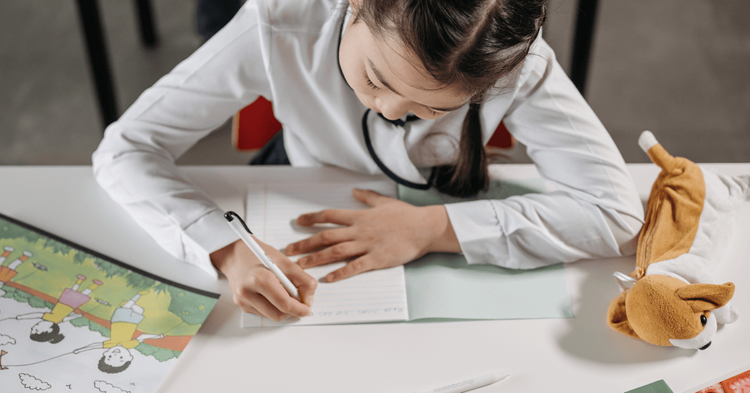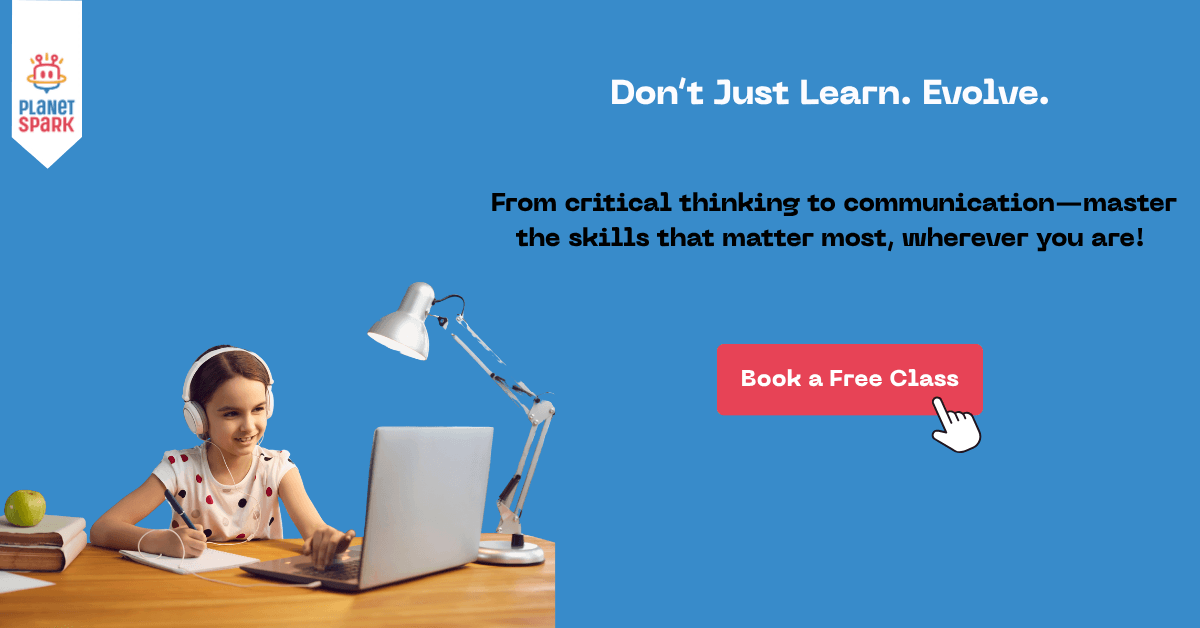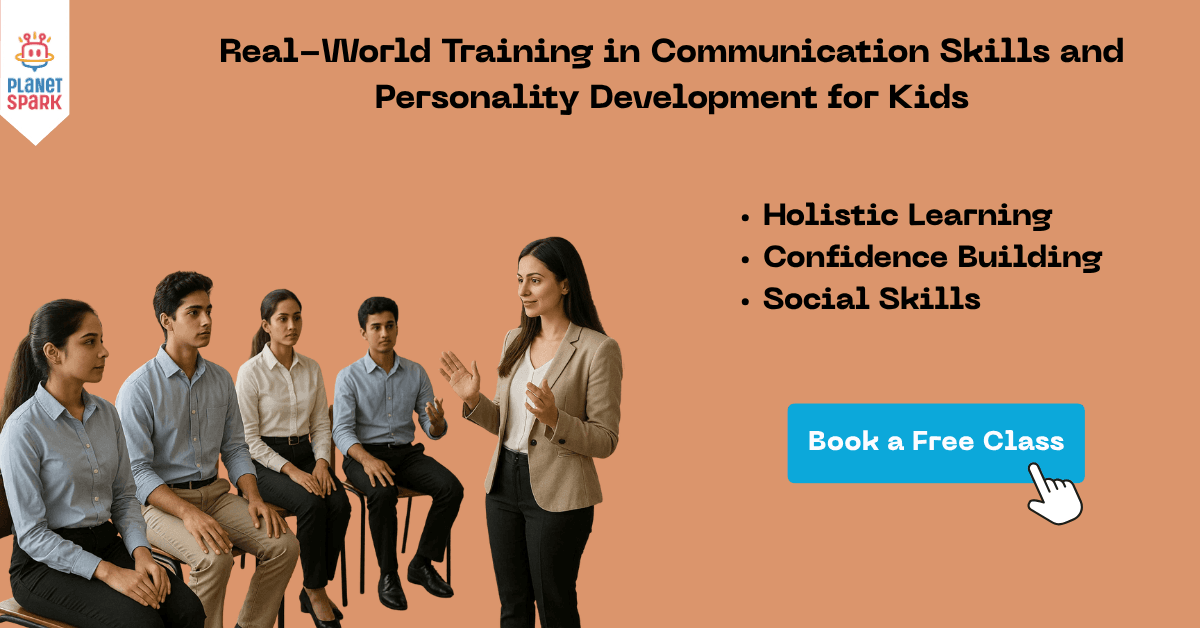Best Skills to Learn: The Ultimate Guide for Students

In an ever-evolving world where technology, industry, and society transform rapidly, one thing remains constant: the need to keep learning. Whether you're a student, a professional, or someone who just loves to grow personally, learning the right skills can make a world of difference.
But what are the best skills to learn in today’s dynamic world?
In this blog, we'll dive deep into the most valuable skills across different aspects of life and career. Plus, we’ll show you how PlanetSpark’s Personality Development Programme can help you build many of these essential skills with expert coaching and real-world practice.
Best Skills to Learn for Students
For students, learning is the cornerstone of growth. However, beyond academic achievement, mastering life and career-ready skills is equally crucial. Find below some best skills to learn for a lucrative future:
1. Communication Skills
Effective communication involves clear speaking, active listening, purposeful writing, and understanding non-verbal cues. These skills allow students to express ideas confidently in class discussions, write compelling essays, and build meaningful relationships. With strong communication, children shine in interviews, presentations, and collaborative settings. Mastery in this area lays the foundation for academic and personal success.
2. Critical Thinking & Problem Solving
Critical thinking helps students assess information logically, identify challenges, and develop smart solutions. Problem-solving trains them to make independent decisions and adapt to unfamiliar situations. These skills reduce reliance on rote learning and improve academic performance. When developed early, they promote a growth mindset and lifelong adaptability.
3. Time Management
Time management is the ability to plan, prioritize tasks, and make the most of each day. Students with this skill complete homework efficiently, prepare for tests systematically, and still find time for hobbies. It teaches them responsibility and reduces stress during busy academic schedules. A well-managed day helps balance learning with fun.
4. Digital Literacy
In today’s tech-driven world, students must know how to use digital tools, perform online research, and understand basic coding or software applications. Digital literacy allows them to learn independently, collaborate online, and solve real-world problems creatively. It prepares them for both school projects and future careers. Staying tech-savvy is no longer optional it’s essential.
5. Leadership & Collaboration
True leadership is about inspiring peers, making decisions, and fostering teamwork. Students who lead effectively in group tasks or school events develop confidence, empathy, and a sense of responsibility. Collaboration helps them work with diverse personalities and respect different perspectives. Together, these skills mold them into future-ready individuals.
Ready to boost your child’s communication skills?
PlanetSpark’s live sessions help students master public speaking, storytelling, and debate with real-time feedback.
Book a free demo class today!
Best Skills to Learn for the Future
The future of work and life is being shaped by automation, artificial intelligence, and global interconnectedness. To stay relevant, focus on adaptable, forward-thinking skills.
1. Emotional Intelligence (EQ)
Emotional Intelligence is the ability to recognize, understand, and regulate one’s own emotions while being empathetic toward others. Students with high EQ manage stress better, resolve peer conflicts peacefully, and maintain healthy relationships. It also builds self-awareness, which enhances decision-making in challenging situations. EQ is a cornerstone of both academic and life succes
2. Adaptability
Adaptability is the willingness to embrace change and learn new skills in a fast-paced world. Whether it’s a shift in school curriculum, technology, or team roles, adaptable students respond with confidence and curiosity. This flexibility helps them thrive in uncertainty and embrace growth opportunities. It’s a vital trait for future leaders and innovators.
3. Data Literacy
Data literacy means knowing how to gather, interpret, and use data effectively. From analyzing graphs in science class to understanding online trends, this skill supports evidence-based thinking. As industries become data-centric, students with data literacy will be more prepared for careers in tech, finance, marketing, and beyond. It builds analytical and strategic thinking from an early age.
4. Creative Thinking
Creative thinking allows students to approach problems in unique, imaginative ways. Whether brainstorming story ideas, designing projects, or solving real-life challenges, it fuels innovation. It encourages curiosity, experimentation, and resilience after failure. In a world that values originality, creativity is no longer optional it’s a career advantage.
5. Cross-Cultural Competency
Cross-cultural competency helps students understand and appreciate different cultures, traditions, and communication styles. It strengthens empathy, global awareness, and respect in diverse group settings. As the world becomes more connected, students with this skill collaborate better and avoid cultural misunderstandings. It’s a must-have for thriving in international teams and communities.
Enroll your child in PlanetSpark’s Personality Development Programme today and watch them transform into confident, articulate, and emotionally aware individuals.
Book a free demo class
Best Skills to Learn in Life
Beyond academics or career, certain life skills form the foundation of a successful, fulfilled life.
1. Financial Literacy
Financial literacy teaches children how to manage money through budgeting, saving, investing, and understanding credit. With this knowledge, they can avoid common financial pitfalls and make informed money choices. It builds confidence around personal finance and planning for the future. Early exposure leads to a lifetime of smart financial habits.
2. Self-Awareness
Self-awareness helps children understand their own emotions, strengths, weaknesses, and values. It encourages mindful behavior, better decision-making, and stronger emotional control. When students know themselves well, they set realistic goals and build more authentic relationships. It’s the first step toward lifelong personal development.
3. Conflict Resolution
Conflict resolution is about handling disagreements calmly and constructively through active listening and empathy. Students who learn this skill avoid unnecessary arguments and build healthier friendships. It empowers them to seek win-win outcomes in both school and life. Mastering it early promotes peace, cooperation, and maturity.
4. Decision-Making
Effective decision-making involves evaluating options, predicting consequences, and choosing wisely. Whether it’s picking study topics, extracurriculars, or navigating peer pressure, this skill is essential. It promotes independence and accountability in both everyday and high-stakes scenarios. Students grow into confident thinkers who own their choices.
5. Empathy
Empathy allows students to truly understand and share the feelings of others. It nurtures kindness, inclusiveness, and social harmony. Children with empathy support their peers, respect differences, and build lasting friendships. It's the foundation for emotionally intelligent leaders and compassionate citizens.
Strong Minds Start With Soft Skills!
Enroll in a program where emotional growth and academic success go hand in hand.
Book for a free trial class today
Best Skills to Learn at Home
Not all learning requires a classroom. Many powerful skills can be honed right at home with the right guidance.
1. Cooking and Nutrition
Learning to cook basic meals helps children and adults become more self-reliant in daily life. It teaches patience, measurement, and planning—all essential life habits. Understanding nutrition promotes better food choices, leading to improved physical and mental health. It’s a fun and practical way to encourage a healthy lifestyle from an early age.
2. Household Management
Household management includes tidying up spaces, doing laundry, budgeting, and completing chores. These daily tasks teach time management, accountability, and problem-solving. Students who contribute at home grow up more organized and independent. It's a critical step in preparing them for adult life.
3. Goal Setting
Setting goals helps children understand how to turn dreams into actionable steps. Whether it's academic achievement or a personal passion, goal setting builds perseverance and focus. Regular tracking of progress fosters accountability and resilience. It nurtures a mindset geared toward growth and achievement.
4. Language Skills
Language skills include reading, vocabulary building, and learning a second language all of which boost brain development. They improve memory, comprehension, and communication in both social and academic settings. A strong language foundation enables clearer expression and broader worldview. It's also key to long-term academic and career success.
5. Basic First Aid
Knowing how to treat minor cuts, burns, or injuries provides a sense of control during emergencies. It builds confidence and calmness in handling unexpected situations. Even basic first aid knowledge can save lives or prevent complications. Teaching it early empowers kids with readiness and responsibility.
Want a structured environment for holistic home learning?
Join a platform that combines fun with real outcomes in communication, leadership, and life skills.
Book a free demo class now!
Best Skills to Learn Every Day
Some skills are like muscle they grow stronger with daily practice. These are the best skills to nurture regularly.
1. Gratitude
Practicing gratitude involves taking time each day to reflect on what you're thankful for—big or small. It promotes a positive outlook, reduces stress, and strengthens emotional well-being. Gratitude also helps students build empathy and appreciate what they have. It’s a simple habit with lasting mental health benefits.
2. Listening
Being a good listener means offering your full attention without interrupting, truly understanding the speaker, and responding thoughtfully. Listening strengthens friendships, improves classroom learning, and boosts emotional intelligence. It builds patience and mutual respect. In group settings, great listeners naturally become great collaborators.
3. Reading
Reading regularly enriches vocabulary, sharpens focus, and expands general knowledge. It stimulates imagination and opens up new perspectives, cultures, and ideas. Whether it’s fiction, nonfiction, or poetry, reading improves writing skills and critical thinking. A daily reading habit builds lifelong learners and thinkers.
4. Journaling
Journaling helps students process thoughts, express emotions, and gain clarity about their experiences. It enhances writing ability, emotional regulation, and self-awareness. Recording goals and reflections in a journal also reinforces learning and encourages personal growth. It’s a quiet yet powerful tool for inner development.
5. Curiosity
Curiosity fuels a desire to explore, learn, and ask questions about the world. It drives creativity, critical thinking, and innovation. Curious students are more engaged, confident, and open to new experiences. Fostering curiosity creates a foundation for lifelong learning.
Why Choose PlanetSpark for Skill Development?
PlanetSpark isn't just another online platform. It is a revolutionary learning space for kids aged 4 to 16 that focuses on communication, leadership, public speaking, and personality development. Here’s what makes it stand out:
- Live, Interactive Classes: Led by expert teachers who engage students with dynamic lessons and real-time discussions.
- Activity-Based Learning: Fun sessions designed around real-life situations such as debates, storytelling, and group discussions.
- Instant Feedback & Improvement: AI tools and personal coaching offer actionable feedback for continuous progress.
- Global Community: Learn and collaborate with students across the world through interactive projects and cross-cultural learning.
- SEL Integration: Focus on social-emotional learning to build emotionally intelligent leaders who excel beyond academics.

Conclusion
The best skills to learn are not just those that help in exams or jobs they are the ones that help you live better. Whether it’s mastering empathy, leading a team, or simply organizing your time well, every skill adds a layer to your personality and prepares you for a dynamic world.
Learning should never stop, and with platforms like PlanetSpark, skill-building can be exciting, meaningful, and results-driven. Equip yourself or your child with skills that matter because the future belongs to the skillful.
More interesting blogs:
Top 10 Communication Skills Every Child Must Learn (Before Age 15)
Learn Descriptive writing skills online
FAQs: Best Skills to Learn
Q. What is the most important skill for students today?
A. Communication and emotional intelligence top the list, as they help students express themselves clearly, understand others, and build meaningful relationships. These skills also support academic performance and personal development.
Q. How can I help my child develop soft skills at home?
A. Encourage daily conversations, assign age-appropriate responsibilities, and involve them in decision-making. Teaching empathy, setting personal goals, and exposing them to diverse experiences can also build essential soft skills.
Q. Are personality development programs really effective?
A. Yes, when they emphasize practical learning, consistent application, and real-life scenarios. Programs that offer personalized feedback and interactive experiences tend to show long-term positive outcomes in children’s behavior and confidence.
Q. Can life skills be learned online?
A. Life skills can be effectively taught online through structured lessons, interactive sessions, and real-world simulations. The key is engagement, consistency, and practice in a guided digital environment.
Q. What is the right age to start learning life skills?
A. Children can begin learning life skills as early as age four. Early exposure to communication, emotional awareness, and basic responsibilities lays the groundwork for future social and academic success.
Personalized Communication Report
Record a video to get a AI generated personalized communication report for your child

Hi There, want to try these
tips for your child with
LIVE with our expert coach?
Let's check your child's
English fluency

